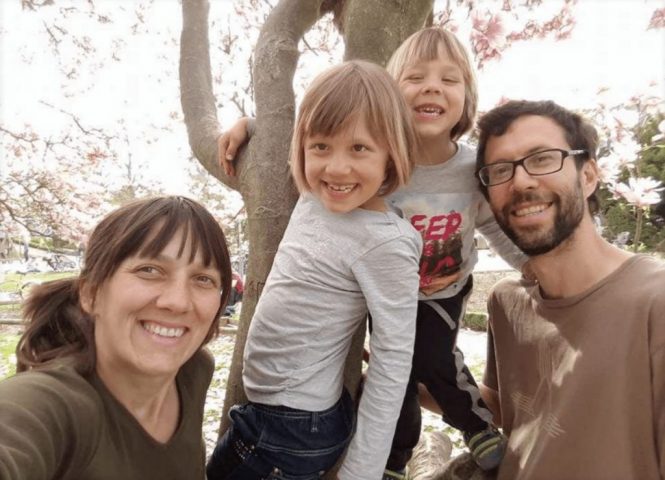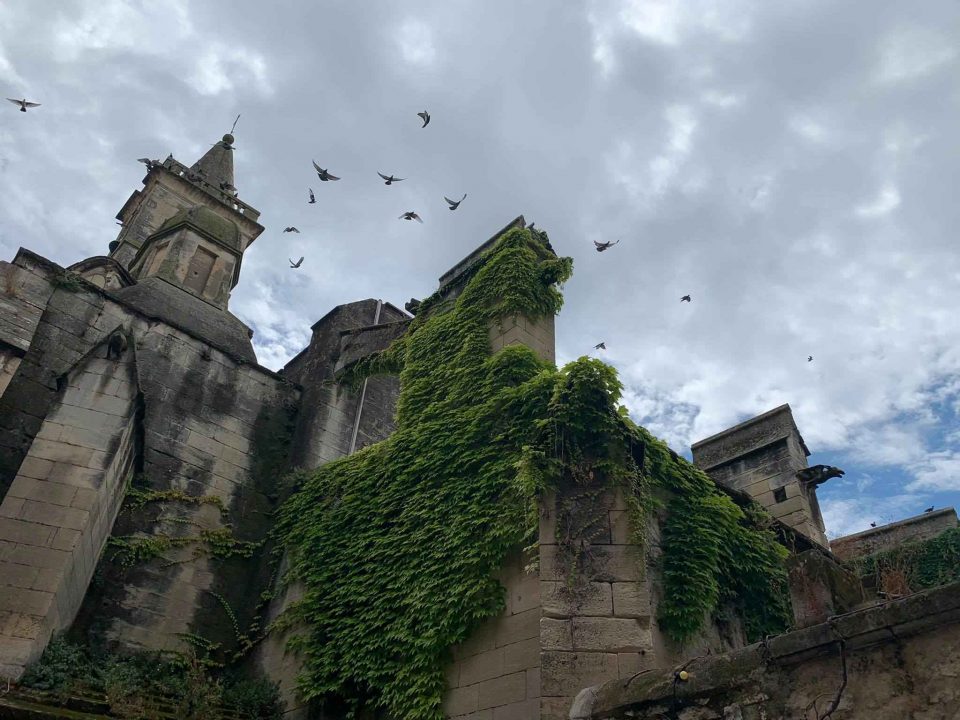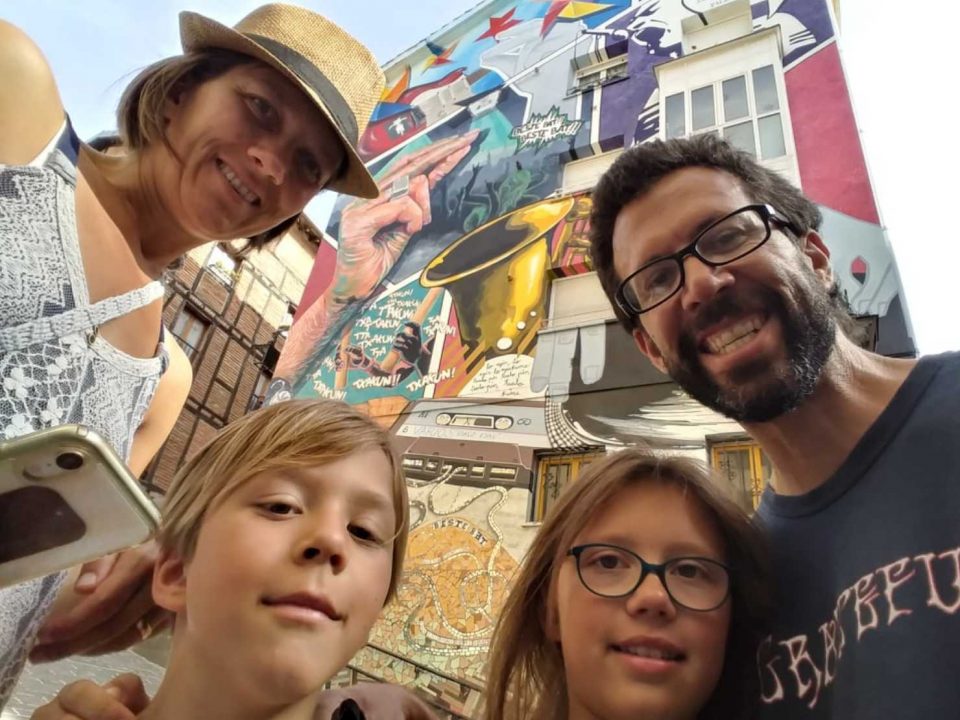
Urban Germany: Well-oiled engine of the European Union
April 11, 2017
Midnight Run: Several Steps to Recovering Lost Passports
May 1, 2017Two weeks ago—or was it three?—we packed up the bus and bid farewell to Erfurt, Germany, heading south toward the Spanish Pyrenees. Which has prompted a handful of readers to ask, why then, are we still in Germany? I wish I could just tell you that we’ve spent the last 10 days test driving Porsches in Baden-Württemberg, but the real answer is a little more complicated, and a little less riveting.
The lakes down here do exude an air of alpine wonder, and the Black Forest cuckoo clocks have a charm all their own. Even certain cemeteries are of notable interest, at least to some of us. But ultimately, it appears to be a conspiracy between some friends in Stuttgart, a mischievous navigational system, and capricious fate, which has stymied our southbound migration.
I, for one, was all in favor of heading straight back to Spain, to bask in the refreshing mountain air and the healing thermal waters. All I asked for was a quick stop in Meßkirch, to pay tribute to the overlord of twentieth century German philosophy, Martin Heidegger, who lived and died there, and was buried in the local churchyard. Some call him the father of existentialism. Others call him the inscrutable poster child for national socialism. I just know that everyone else in our van was ready to call it a day.
Fortune was clearly shining on them, because we soon found a rest stop with just enough space between the massive cargo trucks to squeeze in our humble VW and bed down for the night. Other graveyard visitations have elicited some interesting conversations with my 7-year-old about life after death, post-mortum decay, and the immortality of the soul. But on this occasion, luckily for her, there would be no discussion of Heideggerian metaphysics or the quintessence of Being.
Meanwhile, forces in Stuttgart were plotting to keep our Being grounded somewhere in the immediate vicinity. The housing options, throughout the region, appeared to be numerous; but like German existentialism, all these options have so far eluded our grasp.
Before even considering resettlement in this corner of the globe, it was essential to do some careful research into the local schooling choices. In case it hasn’t already been made obvious, most of our lifestyle choices aren’t what you’d call traditional. Same goes for the education of our offspring. We’ve dabbled in home schooling, we’ve experimented with un-schooling, but for the sake of cultural immersion and rapid assimilation, we do intend to enroll our kids in school when we settle down. And if we settle in Germany, the law mandates school attendance, and this law is strictly enforced.
Despite the rigidity of this law, non-traditional schools—Montessori, Waldorf, democratic, etc.—are fairly widespread in Germany. So it didn’t take me long to find a list of about 15 Free Alternative schools in southwest Germany. Cross-referencing this list with locations that we consider livable and desirable, Freiburg quickly came up as our number one choice.
So we made a return to this fair city to make a more careful assessment. Indeed, if you like living in a city, which for us is still a big IF, Freiburg remains one of the more desirable. It’s semi famous for having the best, i.e warmest and sunniest, weather in the country. The world class university keeps the city vibrant and lively, and accounts for a bulk of the city’s population (c.220,000). Close proximity to France and Switzerland ensure still greater access to multicultural stimulation. And all these factors add up to Freiburg’s being the second or third most expensive city in Germany.
So we’ve been exploring some smaller, surrounding cities from our list, which led us to the winsome and aptly named hamlet of Emmendingen. Just 20 minutes north of Freiburg, Emmendingen boasts the best ice cream parlor in the entire Landkreis, a delightful city park, and a playground capable of captivating our children’s attention for the better part of four hours.
Still, something about this provincial township left us indiscernibly underwhelmed. And in the meantime, we were summoned back to Stuttgart, about two hours north, which is regrettably the opposite direction of the Pyrenees. Our recent consultation with the tarot cards foretold a period of deep intuition, momentary stagnation, and painful indecision. How right they were.
Once again, we got on the road in search of another comfortable roadside turnout. The handy-dandy, ever-friendly voice on the smart phone suggested a highly reviewed, full-service rest stop just a few minutes north of town. Always eager to test our confidence in her navigational wisdom, the voice instructed us to exit the Autobahn about 5 km south of the rest stop, in a lifeless village about half the size but with nothing near the allure of Bradley, CA.
From the offramp, we crossed the highway and passed a truck stop which was not the right truck stop. Smart phone led us quickly out of town and across a swath of farmland by way of a one-lane road. If another car would come from the other direction, that would be the end of us. One of us would forced into the irrigation ditch. But then we crossed the highway again, this time on a wilderness bridge, one of those wonderfully landscaped and seemingly thoughtful bridges that allows deer and rabbits safe passage from one side of the Autobahn to the other.
From here we made a sharp hairpin turn, and the “road” further narrowed into a bike path. But U-turning was clearly impossible, so we proceeded onward with incredulous defiance. A young family of cyclists was kind enough to pull aside and wave us by, fearing for their lives. Next thing you know we were engulfed by towering hazels and mighty oak trees, in what looked to be the heart of the Black Forest. Another sharp turn brought us into the rear parking lot of a shady beer garden. And I mean that in every sense of the word. This was the dark corner of that fabled rest stop in which we would spend the night.






4 Comments
I was a student in Freiburg for a year, back in the 70’s. Wonderful city, and will be making a return visit on my European vacation later this summer, because I loved it so much. But the weather is not the best – often gray and rainy. The local Alemmanisch dialect is far from Hochdeutsch. Hope you get to the farmers market by the church, and maybe climb to the base of the church spire on a nice day and enjoy the views. And the kids should enjoy the Baechle along many of the streets.
As far as German weather goes, I’m afraid that’s as good as it gets. The Schwaebisch dialect is pretty comical, but my deutsch isn’t so hoch either.
I can’t wait to hear what happens next! Were there German bikers there? Are you guys
still there?
The sequel to this cliffhanger may be the most startling episode of all. Stay tuned for “The Midnight Run”!!